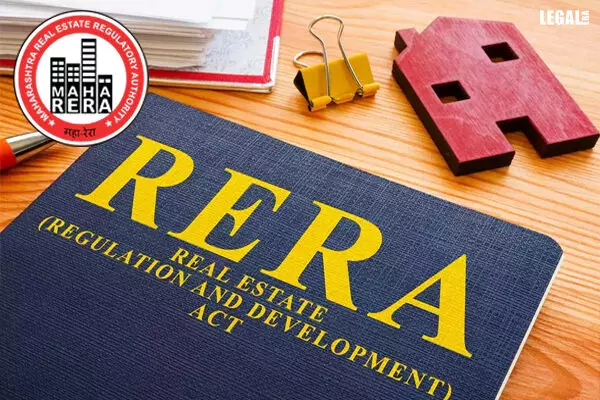- Home
- News
- Articles+
- Aerospace
- AI
- Agriculture
- Alternate Dispute Resolution
- Arbitration & Mediation
- Banking and Finance
- Bankruptcy
- Book Review
- Bribery & Corruption
- Commercial Litigation
- Competition Law
- Conference Reports
- Consumer Products
- Contract
- Corporate Governance
- Corporate Law
- Covid-19
- Cryptocurrency
- Cybersecurity
- Data Protection
- Defence
- Digital Economy
- E-commerce
- Employment Law
- Energy and Natural Resources
- Entertainment and Sports Law
- Environmental Law
- ESG
- FDI
- Food and Beverage
- Gaming
- Health Care
- IBC Diaries
- In Focus
- Inclusion & Diversity
- Insurance Law
- Intellectual Property
- International Law
- IP & Tech Era
- Know the Law
- Labour Laws
- Law & Policy and Regulation
- Litigation
- Litigation Funding
- Manufacturing
- Mergers & Acquisitions
- NFTs
- Privacy
- Private Equity
- Project Finance
- Real Estate
- Risk and Compliance
- Student Corner
- Take On Board
- Tax
- Technology Media and Telecom
- Tributes
- Viewpoint
- Zoom In
- Law Firms
- In-House
- Rankings
- E-Magazine
- Legal Era TV
- Events
- News
- Articles
- Aerospace
- AI
- Agriculture
- Alternate Dispute Resolution
- Arbitration & Mediation
- Banking and Finance
- Bankruptcy
- Book Review
- Bribery & Corruption
- Commercial Litigation
- Competition Law
- Conference Reports
- Consumer Products
- Contract
- Corporate Governance
- Corporate Law
- Covid-19
- Cryptocurrency
- Cybersecurity
- Data Protection
- Defence
- Digital Economy
- E-commerce
- Employment Law
- Energy and Natural Resources
- Entertainment and Sports Law
- Environmental Law
- ESG
- FDI
- Food and Beverage
- Gaming
- Health Care
- IBC Diaries
- In Focus
- Inclusion & Diversity
- Insurance Law
- Intellectual Property
- International Law
- IP & Tech Era
- Know the Law
- Labour Laws
- Law & Policy and Regulation
- Litigation
- Litigation Funding
- Manufacturing
- Mergers & Acquisitions
- NFTs
- Privacy
- Private Equity
- Project Finance
- Real Estate
- Risk and Compliance
- Student Corner
- Take On Board
- Tax
- Technology Media and Telecom
- Tributes
- Viewpoint
- Zoom In
- Law Firms
- In-House
- Rankings
- E-Magazine
- Legal Era TV
- Events
Maharashtra RERA initiates grading system for realty projects

Maharashtra RERA initiates grading system for realty projects
The process is likely to commence between October 2023-March 2024
The Maharashtra Real Estate Regulatory Authority (RERA) has taken a revolutionary step by introducing a grading system for housing projects across the state. It aims to empower homebuyers in filtering out unprofessional developers and provides them with a better understanding of project suitability and quality.
However, some analysts have expressed concerns that the highly-graded projects may exploit the system by charging significantly higher prices than the prevailing market rates. While concerns regarding the potential price disparities exist, RERA aims to enhance consumer protection within the real estate sector.
Scheduled to commence between October 2023-March 2024, initially, all projects registered from January 2023 onwards will undergo grading. The first round of results would be announced on 20 April.
Subsequently, the authority also plans to establish a matrix for grading promoters.
Automatically generated through Maharashtra RERA's information technology solution CriTi, the grading system evaluates factors including project overview, technical snapshot, financial details, and legal snapshot. The system considers the promoters' compliance track record, legal litigations, project finance quality, amenities, the status of statutory approvals, booking percentage, financial and legal encumbrances, and audit certification.
Until now, such information was inaccessible to homebuyers and rarely provided by realtors.
The system aims to assist homebuyers in making more informed decisions by considering financial, legal, technical, and timely completion risk factors and choosing the right project. It is a significant step towards empowering them by providing transparent information.
However, MahaRERA has clarified that project grading will not guarantee an absence of issues, but could instil confidence in prospective investors.
It has, meanwhile, invited suggestions and objections regarding the system. The stakeholders and the general public can provide their feedback on the proposed framework until 15 July. To ensure the system's effectiveness and fairness, RERA intends to incorporate diverse perspectives.
The regulatory authority was inspired by global examples of successful grading systems in Singapore, Australia, and Dubai.


